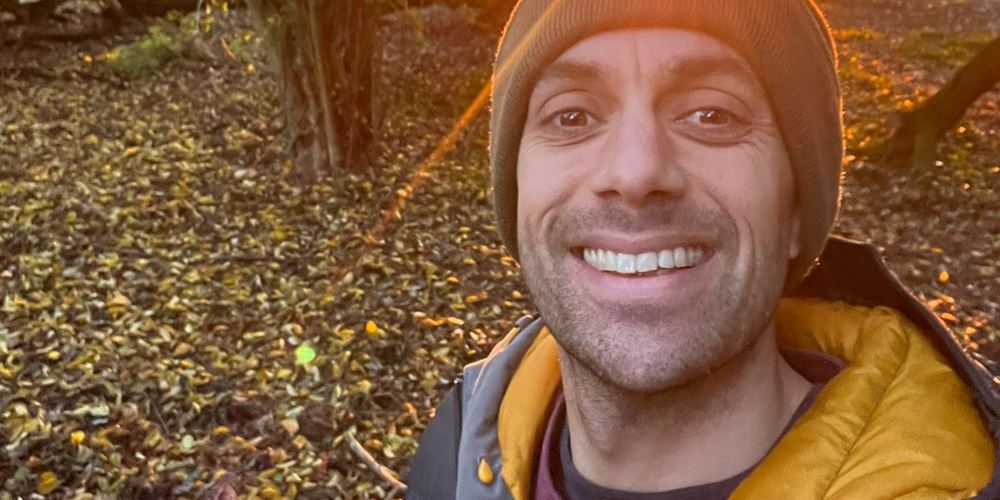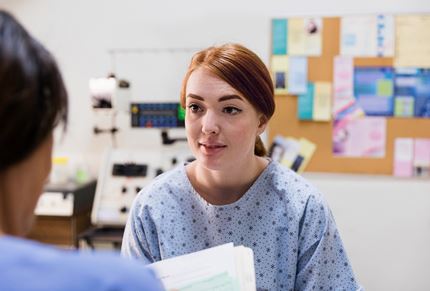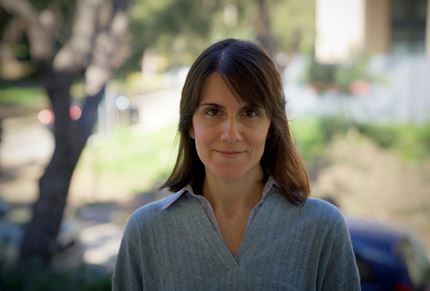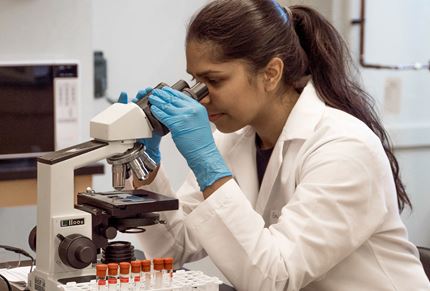Nick's bowel cancer story
22nd March 2022
When Nick noticed that he had been feeling much more tired than usual, he didn’t think it was anything serious. He was in his thirties and living his life - which involved exercising a lot, working a lot, and spending quality time with friends and family. It didn’t even cross his mind that it could be cancer. But then everything changed.
When I was at home for Christmas in 2020, I started noticing changes in my bowel habits. I didn’t really think much of it - I just put it down to indulging over the festive period compared to my usual diet.
But over the next month there were more changes. And then I noticed there was blood in my poo. My mum encouraged me to book an appointment with my GP and I got an appointment the same day.
Initially, the GP wasn’t too concerned that it was anything serious. But when I explained that my father had been diagnosed with bowel cancer a decade ago, she requested that I have a colonoscopy as soon as possible. It was quite a painful experience, and I hadn’t appreciated that you could actually see the TV screen showing the camera inside you.
"Looking at the screen, I immediately knew that something wasn’t quite right. "
After further tests, scans, and a sigmoidoscopy, they confirmed that I had stage 3 bowel cancer. There was an aggressive tumour the size of a golf ball that had broken through my bowel wall and was very close to attaching itself to my bladder.
Treatment needed to begin immediately, so I started 6 weeks of daily chemotherapy and radiotherapy (with weekends off) to try and shrink the tumour. Amazingly, it was a success – the tumour shrank by more than a centimetre. This news made all the struggling with side effects worthwhile, and it meant that we could move on to the next step – which was an operation to remove the tumour.
The operation went well but in lots of ways it was also harder than I expected. I woke up with lots of scars, with tubes and machines attached to me, and I needed a temporary stoma bag to give my body the time it needed to heal properly from the procedure. I remember feeling really emotional after the surgery.
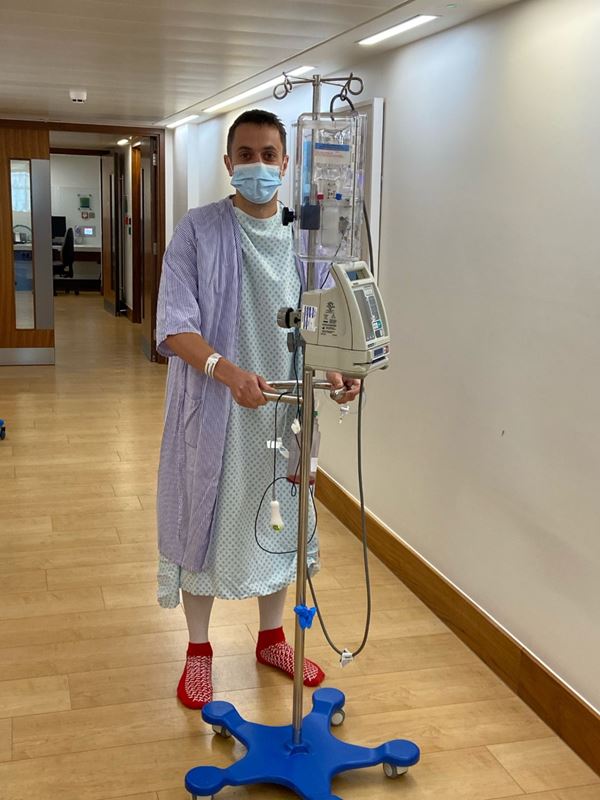
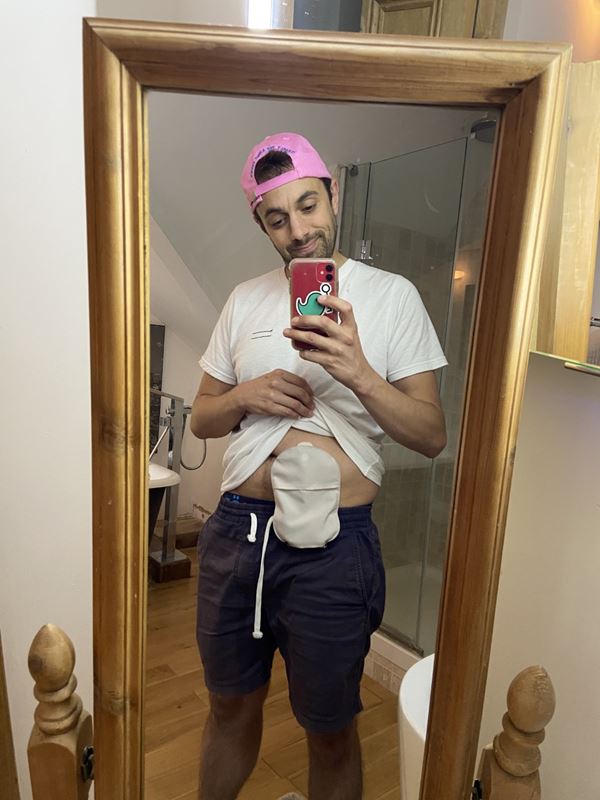
"I kept thinking about everything I had gone through already, and how it wasn’t anywhere close to being over."
In between my first operation and my stoma reversal procedure, I still had to endure another 6 months of repeated chemotherapy. It all really affected me mentally and emotionally, and it took me a good few months to get my head around the changes to my body.
I couldn’t have done it without the support of my parents. Moving back home with them when I was diagnosed was the best decision – for all of us.
They helped in any way that they could. My dad drove me to my appointments, and my mum took the lead in the kitchen – helping me to follow my very strict prescribed diet. It’s like it gave them an element of control – something the cancer couldn’t take over.
Interestingly, a histology report showed that my cancer wasn’t genetic and that sadly it was just an awful coincidence that my dad and I both had bowel cancer. But it’s scary to think that without that family history, I might not have been offered the colonoscopy that led to my diagnosis.
"Cancer doesn’t discriminate. It can affect anybody, at any age."
When I look back now, I can’t believe how much I’ve been through. I’m so grateful to be able to say that I’m now in remission and I can get on with my life again - being able to plan for the future is such a heart-warming feeling.
1 in 2 people get cancer now and it’s so important to remember that can include young people too. I hope that I can help even just one person by sharing my story and by encouraging anyone to visit their GP if they feel that something isn’t quite right.
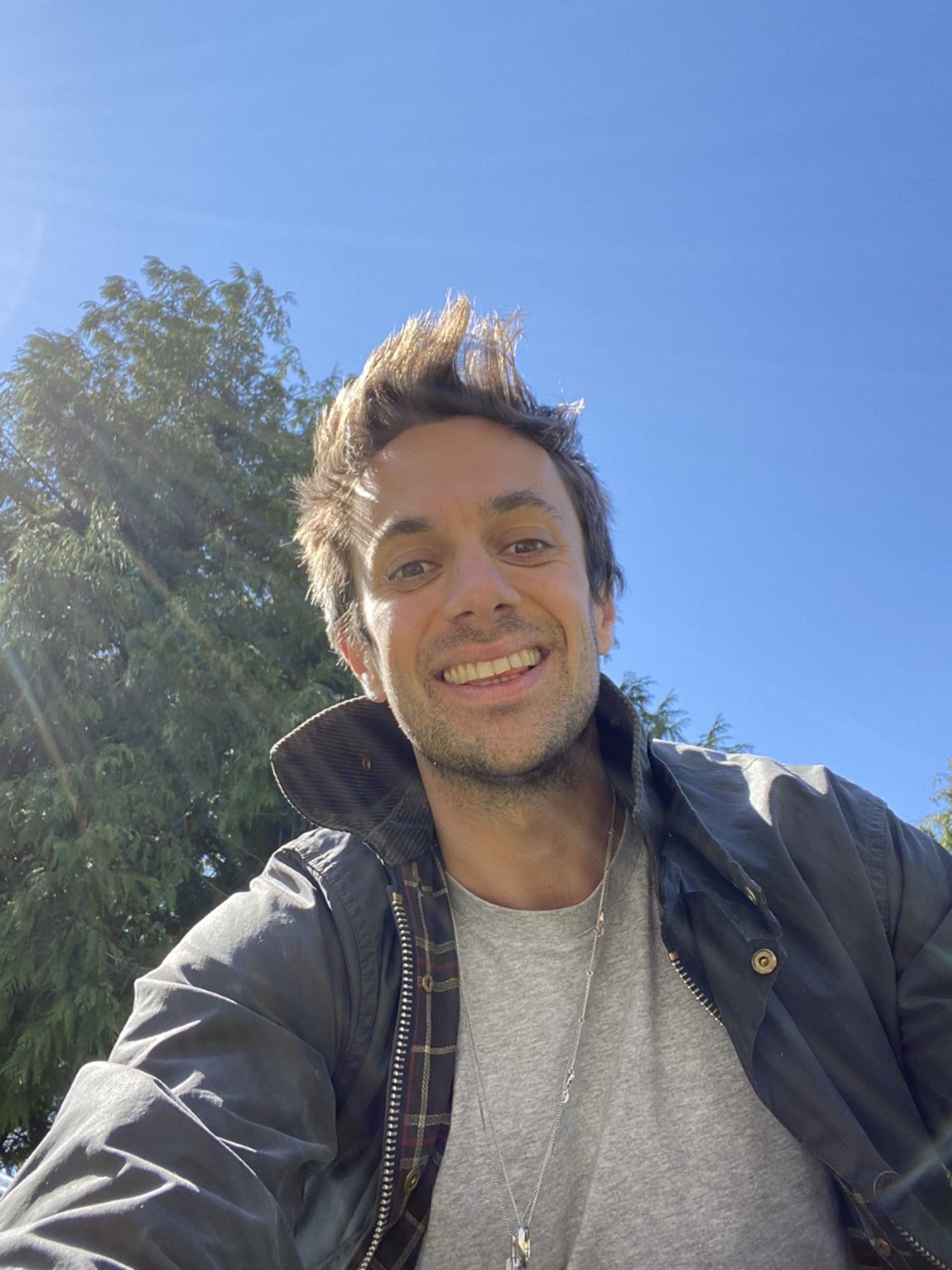
I’m personally really grateful to Worldwide Cancer Research for starting new cancer cures.
It’s so important that we all work together to try and beat cancer. Any way that we can actually stop the suffering caused by cancer – I want to be a part of that.
Will you become a Curestarter today and help fund lifesaving research around the world?
